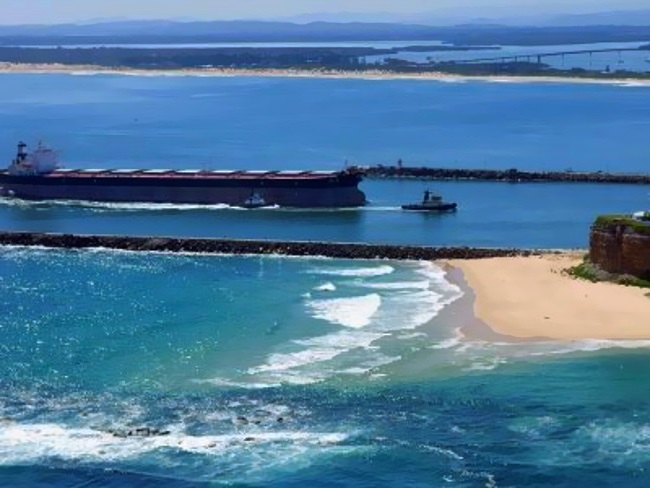During the past two decades, China’s rise as an economic powerhouse has also triggered a massive expansion of the shipping industry, both in China, but also globally. So, with the country coming to terms with the first major economic crisis of its recent history, shipping is bound to be rocked.
In its latest weekly report, shipbroker Allied Shipbroking noted that “shipping may well make claim of carrying 90% of world trade, yet its China that accounts for 30% of the world’s key commodity imports that really makes for a big driver of dry bulk freight rates. It takes up more that 60 percent of the iron ore and soyabean markets, while accounting for roughly 30% and 20% of the global trade in fertilizers and coal respectively. Its dominant position has been more than emphasized by the recent rally that was witnessed in key parts of the dry bulk freight market these past few weeks. With China having already eased back from its lockdown restrictions, traders have utilized the relatively soft commodity prices to snap up large volumes.
According to Mr. George Lazaridis, Head of Research & Valuations with Allied, “the volumes have been considerable and have gone a long way in helping freight rates recover. Yet with economic activity in China still struggling to find a strong foothold, the situation could be more troublesome than one might think. China released last week a series of major economic indicators for May, showing an improvement in investment, consumption and industrial output compared to what was being seen in April. Yet this improvement was still far less than most economists expected, while we are still seeing a fairly high level of urban unemployment rates. So, what’s been feeding this import frenzy? In part, a whole lot of this increased appetite from traders has been the accumulated demand lost during the first quarter of the year. Another major driver has been the low prices seen across most commodity markets, with many traders finding this as an opportune moment to snap up stockpiles at relatively low levels”.
Lazaridis said that “in cases such as that of Iron ore as well as other major dry bulk commodities, we have even seen an increased level of concern over any potential export disruptions that could be noted from the escalating pandemic conditions in Brazil and increasing trade tensions with Australia, leading many traders to increase their restocking while they can. The roll-out of fiscal stimulus measures has also helped the situation, driving up demand from the strong recovery noted last month in construction, though demand from manufacturing is still lagging behind. Beyond this however it is evident that China can’t go at it alone.
He added that “without the strong consumption driven demand from the West, China will struggle to return back soon to its near-term growth rates. At the same time, fiscal stimulus measures may well have the added benefit of usually driving strong demand for new infrastructure programs, though China’s commitment, although significant, has been a mere 10% of its GDP, a figure considerably less than the 20% committed by most OECD economies. A large portion of China’s economic growth is still export driven, though even the part that is driven by internal consumption is under threat with an increasing number of small business closures and sharp rise in unemployment weighing down heavily on the internal economy’s ability to re-boost itself back on track”.
“Chinese consumer spending has posted an increase in May, though still lagging behind last year’s levels. Over the next month or so the freight market may well re-energize back to fairly firm levels, helping owners recover some of the losses incurred during the first quarter of the year. The resurgence that has been noted in demand however is still looking to be temporary and fragile in nature. The still looming threat of a renewed lockdown in Autumn, coupled with a still sluggish paced recovery in the West and continued geopolitical issues, leave for a high-risk potential of a complete derailment of the recovery effort being made”, Allied’s analyst concluded.
Source:- Hellenic Shipping News






